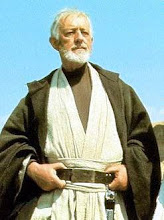This selection contains a few more prophesies of Lehi to his sons. He describes the state of the Jews before and around the time of Christ. He says that they will dwindle in unbelief and slay the Messiah. After the Messiah should be slain, he would rise from the dead and would manifest himself unto the Gentiles through the power of the Holy Ghost. He then describes the Gentiles and their existence on earth like the branches of an olive tree that will be scattered upon all the face of the earth (see Jacob 5 for a similar detailed account). Lehi then states that they are going to a land of promise on the other side of the earth (the Americas vs. Jerusalem) to help fulfill that prophesy. Then they shall be gathered in again. The next few details that Lehi gives, shows that there is at least a spiritual side to the gathering. This will happen when they gain a knowledge of Jesus Christ and His gospel. It will be like grafting in the branches to the olive tree of the gospel.
Nephi says that this is all he will write in the Small Plates about Lehi's prophesies. Others he felt were more appropriate for the Large Plates. But we know that the Small Plates are precious and have a more spiritual accounting of these events. Nephi then says that all this (going back for the brass plates, going back for the family of Ishmael, Lehi's dream, prophesies, and admonition of his two oldest sons) was done while Lehi dwelt in a tent in the valley of Lemuel.
Subscribe to:
Post Comments (Atom)

3 comments:
I know this is a silly question and maybe I should even know the answer, but... why do you think it is so important that Nephi always mentions that his father dwelt in a tent? It is mention multiple times throughout his writings. Do you think it is comparing to where he used to live? Or do you think it is to show that his father didn't have much to do with some of the happenings physically, because he was in a tent? I just have always thought, if something is mention multiple, multiple times - then it must be important... what do you think.
That's a very interesting question! I hadn't thought of that before, so I did a couple of quick searches. There are five times Nephi says "tent of my father." After something major has happened (e.g., visions and journeys) he mentions that it was at the tent of his father. (In 1 Nephi alone, Nephi mentions tents 23 times out of a total of 37 times in the whole Book of Mormon.)
It is possible, that he felt that it was important to mention that they were still in the Valley of Lemuel. However, we as readers would not assume that it was somewhere else because he hasn't mentioned that they've traveled any further in the wilderness.
It is possible that Nephi does want to compare the conditions of their current life to how nice it was before. They did have many riches that are now Laban's. Well, I should say Laban's family's because Laban is no longer with us. It is likely that they also had a large estate. It had to be good because Laman and Lemuel didn't want to leave it.
It is possible that Lehi was old and that's where he spent most of the day while they needed to stay to wait for his sons on their two journeys and such, to protect him from the environment. I looked up some weather stats and the further you go away from Jerusalem the hotter the average temperature is. There are also cold extremes during the winters and probably a lot of sand blowing around at times.
I also think it is possible that it has a spiritual significance. I wonder if Nephi is using the tent of his father as a metaphor for the church. They didn't have an opportunity to meet at a real one when they were traveling in the wilderness, but it seems that all of their spiritual experiences happened at the tent of his father. His father had just finished prophesying many things. Nephi says that his father spoke many things to him and his older brothers there that he didn't write them all down. This account is from the Small Plates, too. They were specially made to record the more spiritual experiences Nephi had.
So, to answer your question, I think that all of these possibilities are reason why Nephi mentioned his father's tent a lot. He might have thought that he mentioned his father's tent a lot when he was engraving the words on plates. He was probably like, "Well, I can't erase them, so there they stay."
Post a Comment